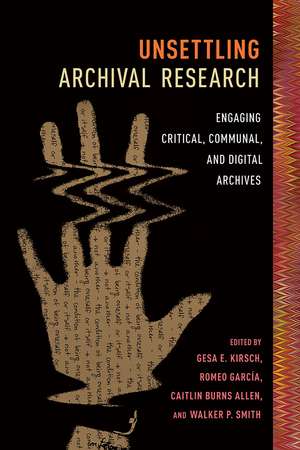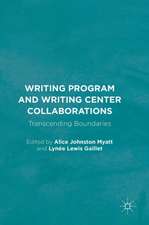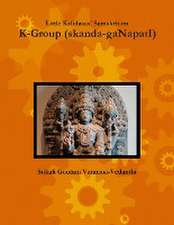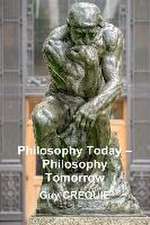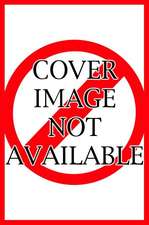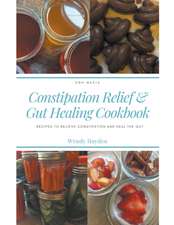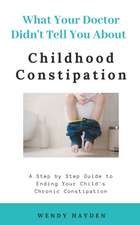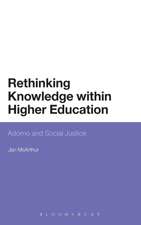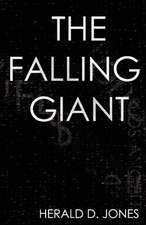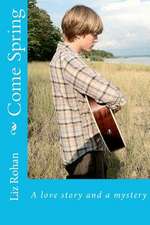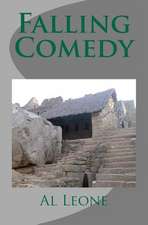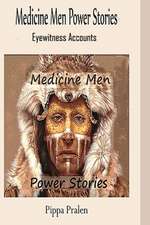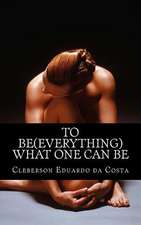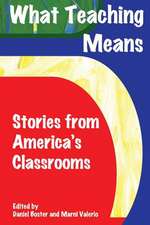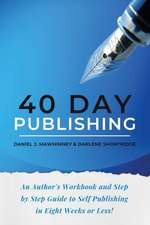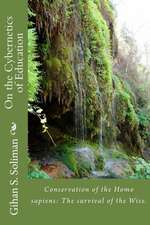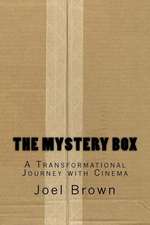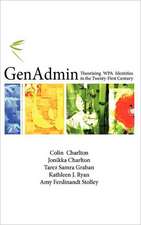Unsettling Archival Research: Engaging Critical, Communal, and Digital Archives
Editat de Gesa E Kirsch, Romeo García, Caitlin Burns Allen, Walker P. Smith Contribuţii de Jean Bessette, Wendy Hayden, Jacqueline Michele James, Kalyn Prince, Kathryn Manis, Patricia Anne Wilde, Lynée Lewis Gaillet, Jessica Alcorn Rose, María P. Carvajal Regidor, Sally Fisher Benson, Pamela Takayoshi, Liz Rohan, Tarez Samra Graban, Jennifer Marie Almjeld, Rebecca Schneider, Deborah R. Hollis, Amy J. Lueck, Nadia-Katherine Ghazi Nasren Limba Engleză Paperback – 21 mar 2023
HONORABLE MENTION, 2024 Conference on College Composition and Communication Outstanding Book Award in Edited Collection!
A collection of accessible, interdisciplinary essays that explore archival practices to unsettle traditional archival theories and methodologies.
What would it mean to unsettle the archives? How can we better see the wounded and wounding places and histories that produce absence and silence in the name of progress and knowledge? Unsettling Archival Research sets out to answer these urgent questions and more, with essays that chart a more just path for archival work.
Unsettling Archival Research is one of the first publications in rhetoric and writing studies dedicated to scholarship that unsettles disciplinary knowledge of archival research by drawing on decolonial, Indigenous, antiracist, queer, and community perspectives. Written by established and emerging scholars, essays critique not only the practices, ideologies, and conventions of archiving, but also offer new tactics for engaging critical, communal, and digital archiving within and against systems of power. Contributors reflect on efforts to unsettle and counteract racist, colonial histories, confront the potentials and pitfalls of common archival methodologies, and chart a path for the future of archival research otherwise. Unsettling Archival Research intervenes in a critical issue: whether the discipline’s assumptions about the archives serve or fail the communities they aim to represent and what can be done to center missing voices and perspectives. The aim is to explore the ethos and praxis of bearing witness in unsettling ways, carried out as a project of queering and/or decolonizing the archives.
Unsettling Archival Research takes seriously the rhetorical force of place and wrestles honestly with histories that still haunt our nation, including the legacies of slavery, colonial violence, and systemic racism.
A collection of accessible, interdisciplinary essays that explore archival practices to unsettle traditional archival theories and methodologies.
What would it mean to unsettle the archives? How can we better see the wounded and wounding places and histories that produce absence and silence in the name of progress and knowledge? Unsettling Archival Research sets out to answer these urgent questions and more, with essays that chart a more just path for archival work.
Unsettling Archival Research is one of the first publications in rhetoric and writing studies dedicated to scholarship that unsettles disciplinary knowledge of archival research by drawing on decolonial, Indigenous, antiracist, queer, and community perspectives. Written by established and emerging scholars, essays critique not only the practices, ideologies, and conventions of archiving, but also offer new tactics for engaging critical, communal, and digital archiving within and against systems of power. Contributors reflect on efforts to unsettle and counteract racist, colonial histories, confront the potentials and pitfalls of common archival methodologies, and chart a path for the future of archival research otherwise. Unsettling Archival Research intervenes in a critical issue: whether the discipline’s assumptions about the archives serve or fail the communities they aim to represent and what can be done to center missing voices and perspectives. The aim is to explore the ethos and praxis of bearing witness in unsettling ways, carried out as a project of queering and/or decolonizing the archives.
Unsettling Archival Research takes seriously the rhetorical force of place and wrestles honestly with histories that still haunt our nation, including the legacies of slavery, colonial violence, and systemic racism.
Preț: 310.78 lei
Nou
Puncte Express: 466
Preț estimativ în valută:
59.48€ • 61.100$ • 49.52£
59.48€ • 61.100$ • 49.52£
Carte disponibilă
Livrare economică 16-30 decembrie
Preluare comenzi: 021 569.72.76
Specificații
ISBN-13: 9780809338955
ISBN-10: 0809338955
Pagini: 338
Ilustrații: 26
Dimensiuni: 152 x 229 x 30 mm
Greutate: 0.46 kg
Ediția:First Edition
Editura: Southern Illinois University Press
Colecția Southern Illinois University Press
ISBN-10: 0809338955
Pagini: 338
Ilustrații: 26
Dimensiuni: 152 x 229 x 30 mm
Greutate: 0.46 kg
Ediția:First Edition
Editura: Southern Illinois University Press
Colecția Southern Illinois University Press
Notă biografică
Gesa E. Kirsch is professor of Rhetoric and Composition at Soka University of America. Her books include Feminist Rhetorical Practices: New Horizons for Rhetoric, Composition, and Literacy Studies; Beyond the Archives: Research as a Lived Process; and Ethical Dilemmas in Feminist Research.
Romeo García is assistant professor of writing and rhetoric at the University of Utah and coeditor of Rhetorics Elsewhere and Otherwise.
Caitlin Burns Allen is a doctoral candidate in rhetoric and composition at the University of Louisville. Her work has appeared in Ethics and Representation in Feminist Rhetorical Inquiry and Peitho.
Walker P. Smith holds a PhD in rhetoric and composition from the University of Louisville.
Contributions by Jennifer Almjeld, Sally F. Benson, Jean Bessette, María P. Carvajal Regidor, Lynée Lewis Gaillet, Tarez Samra Graban, Wendy Hayden, Deborah Hollis, Jackie M. James, Amy J. Lueck, Kathryn Manis, Nadia Nasr, Kalyn Prince, Liz Rohan, Jessica A. Rose, Rebecca Schneider, Pamela Takayoshi, and Patty Wilde.
Romeo García is assistant professor of writing and rhetoric at the University of Utah and coeditor of Rhetorics Elsewhere and Otherwise.
Caitlin Burns Allen is a doctoral candidate in rhetoric and composition at the University of Louisville. Her work has appeared in Ethics and Representation in Feminist Rhetorical Inquiry and Peitho.
Walker P. Smith holds a PhD in rhetoric and composition from the University of Louisville.
Contributions by Jennifer Almjeld, Sally F. Benson, Jean Bessette, María P. Carvajal Regidor, Lynée Lewis Gaillet, Tarez Samra Graban, Wendy Hayden, Deborah Hollis, Jackie M. James, Amy J. Lueck, Kathryn Manis, Nadia Nasr, Kalyn Prince, Liz Rohan, Jessica A. Rose, Rebecca Schneider, Pamela Takayoshi, and Patty Wilde.
Extras
INTRODUCTION
Archives are sites of history and memory. A central premise of Unsettling Archival Research is that any archive will merit and inevitably demand a careful reckoning with wound/ed/ing histories that continue to haunt our nation. Archives either refuse to conceptualize others’ communities as having memory and history or objectivize their memory and history as both something that belongs to the West and something to be studied under Western eyes. As a consequence, new archives and/or community archives are emerging so that local histories, memories, languages, and political legacies are not fully erased. Nonetheless, we contend that Archives need unsettling. Archives are never neutral instruments of storing information, but rather, always already involve knowledge production, and hence, power. Albeit we return to the archives for various reasons; a careful reckoning with them, particularly in the context of memory and history, demands an act of unsettling and amending. The unsettling of archival research has a broader meaning as well; it means one does not simply “return to the archives,” as scholars have made calls to in the past, only to extract, examine, or appropriate information found within them. Rather, it means taking seriously the rhetorical force of place(s) (e.g., material forms of public memory) and confronting the wound/ed/ing histories of our nation.
Each writer, hence, complexly accounts for the materiality, symbolism, and functionality of archival research; the intermingling of archival materials with colonial history, race, ethnicity, sexuality, gender, class, ability, and/or religion; and the rhetoricity of their work in unsettling them. Such rhetoricity calls into question where the lessons of bearing witness and unsettling are learned and how they inform a current ethos and praxis of unsettling. Contributors also necessarily take up important new work emerging in the field of critical archival studies (Caswell; Caswell et al; Gilliland; Hughes-Watkins), a disciplinary gap that remains to be filled, especially as more writing studies scholars are beginning to forge valuable connections with archivists, data scientists, and librarians. Indeed, this collection recognizes and engages a concern expressed by Michelle Caswell in 2016—that the archival turn in the humanities has ignored archival studies as a “field of theory and praxis in its own right,” thereby disregarding the important contributions of critical archival scholars in many ways and reenacting symbolic colonial power structures.
Though unsettling is grounded in the historical arc of social injustices, systemic and epistemic racism, and systemic violence, it is a project of academics too who are interested in carefully reckoning with and unsettling that which is constituted as legible—the university, disciplines, archives. Building on the rich tradition of important archival scholarship such as Traces of a Stream (Royster), Liberating Language (Wilson Logan), Beyond the Archives (Kirsch & Rohan), and Working in the Archives (Ramsey, et. al.), Unsettling Archival Research seeks to unsettle our disciplinary knowledge of archival research by critically drawing on decolonial, anti-colonial, Indigenous, antiracist, queer, communal, and transnational perspectives and approaches. This book includes both critiques of archiving as a set of institutional practices, ideologies, and conventions, and new tactics of engaging critical, communal, and digital archiving within and against systems of power. Contributors reflect on how to expose, resist, and counteract racist, colonial histories; explore alternatives by highlighting how radical political approaches might support them; and illuminate the tactical archival practices that can decenter, reshape, and rewrite traditional archival methodologies and pedagogies.
One goal for this collection is to present a new vision of archival research—one that invites understanding of small-a archives beyond institutional Archives. What and how society chooses to remember history is significant. This is a crucial time in our history to ask what the future will look like, how we want to remember this period, and how we can unsettle history and memory. In taking steps towards such ends, unsettling material forms of public memory is required, and we seek to share emergent tactics and chart new directions for those undertaking such work. Many of these tensions are also present in archives. Unsettling Archival Research explicitly focuses on unsettling and confronting wound/ed/ing places and institutions and represents a range of voices and perspectives, including those of emerging and established scholars who are unsettling archival research now, while examining how and whether our discipline’s settled assumptions about the archives continue to serve (or fail to serve) us. In Unsettling Archival Research, authors address and work through these very tensions, often reflecting on how marginalized communities throughout the U.S. have long utilized archiving as a responsive political tool to mainstream public memory. The writers in this collection are connected by a common thread: exhibiting their epistemic right to confront, reveal, and amend the epistemic privileges of a proper Memory and History that remains responsible for the marginalization of other histories and memories.
[end of excerpt]
Archives are sites of history and memory. A central premise of Unsettling Archival Research is that any archive will merit and inevitably demand a careful reckoning with wound/ed/ing histories that continue to haunt our nation. Archives either refuse to conceptualize others’ communities as having memory and history or objectivize their memory and history as both something that belongs to the West and something to be studied under Western eyes. As a consequence, new archives and/or community archives are emerging so that local histories, memories, languages, and political legacies are not fully erased. Nonetheless, we contend that Archives need unsettling. Archives are never neutral instruments of storing information, but rather, always already involve knowledge production, and hence, power. Albeit we return to the archives for various reasons; a careful reckoning with them, particularly in the context of memory and history, demands an act of unsettling and amending. The unsettling of archival research has a broader meaning as well; it means one does not simply “return to the archives,” as scholars have made calls to in the past, only to extract, examine, or appropriate information found within them. Rather, it means taking seriously the rhetorical force of place(s) (e.g., material forms of public memory) and confronting the wound/ed/ing histories of our nation.
Each writer, hence, complexly accounts for the materiality, symbolism, and functionality of archival research; the intermingling of archival materials with colonial history, race, ethnicity, sexuality, gender, class, ability, and/or religion; and the rhetoricity of their work in unsettling them. Such rhetoricity calls into question where the lessons of bearing witness and unsettling are learned and how they inform a current ethos and praxis of unsettling. Contributors also necessarily take up important new work emerging in the field of critical archival studies (Caswell; Caswell et al; Gilliland; Hughes-Watkins), a disciplinary gap that remains to be filled, especially as more writing studies scholars are beginning to forge valuable connections with archivists, data scientists, and librarians. Indeed, this collection recognizes and engages a concern expressed by Michelle Caswell in 2016—that the archival turn in the humanities has ignored archival studies as a “field of theory and praxis in its own right,” thereby disregarding the important contributions of critical archival scholars in many ways and reenacting symbolic colonial power structures.
Though unsettling is grounded in the historical arc of social injustices, systemic and epistemic racism, and systemic violence, it is a project of academics too who are interested in carefully reckoning with and unsettling that which is constituted as legible—the university, disciplines, archives. Building on the rich tradition of important archival scholarship such as Traces of a Stream (Royster), Liberating Language (Wilson Logan), Beyond the Archives (Kirsch & Rohan), and Working in the Archives (Ramsey, et. al.), Unsettling Archival Research seeks to unsettle our disciplinary knowledge of archival research by critically drawing on decolonial, anti-colonial, Indigenous, antiracist, queer, communal, and transnational perspectives and approaches. This book includes both critiques of archiving as a set of institutional practices, ideologies, and conventions, and new tactics of engaging critical, communal, and digital archiving within and against systems of power. Contributors reflect on how to expose, resist, and counteract racist, colonial histories; explore alternatives by highlighting how radical political approaches might support them; and illuminate the tactical archival practices that can decenter, reshape, and rewrite traditional archival methodologies and pedagogies.
One goal for this collection is to present a new vision of archival research—one that invites understanding of small-a archives beyond institutional Archives. What and how society chooses to remember history is significant. This is a crucial time in our history to ask what the future will look like, how we want to remember this period, and how we can unsettle history and memory. In taking steps towards such ends, unsettling material forms of public memory is required, and we seek to share emergent tactics and chart new directions for those undertaking such work. Many of these tensions are also present in archives. Unsettling Archival Research explicitly focuses on unsettling and confronting wound/ed/ing places and institutions and represents a range of voices and perspectives, including those of emerging and established scholars who are unsettling archival research now, while examining how and whether our discipline’s settled assumptions about the archives continue to serve (or fail to serve) us. In Unsettling Archival Research, authors address and work through these very tensions, often reflecting on how marginalized communities throughout the U.S. have long utilized archiving as a responsive political tool to mainstream public memory. The writers in this collection are connected by a common thread: exhibiting their epistemic right to confront, reveal, and amend the epistemic privileges of a proper Memory and History that remains responsible for the marginalization of other histories and memories.
[end of excerpt]
Cuprins
CONTENTS
List of Illustrations
Acknowledgements
Introduction—Romeo García, Gesa E. Kirsch, Walker P. Smith, and Caitlin Burns Allen
Part One. Unsettling Key Concepts
1. Unsettling the “Archive Story”—Jean Bessette
2. Rescuing the Archive from What?—Wendy Hayden
3. Narratives of Triumph: A Case Study of the Polio Archive—Jackie M. James
4. Nostalgia in the Archives: Using Nostalgia as a Tool for Negotiating Ideological Tensions—Kalyn Prince
5. A Matter of Order: The Power of Provenance in the Mercury Collection of Marion Lamm—Kathryn Manis and Patty Wilde
Part Two. Unsettling Research, Theory, and Methodology
6. Hidden in Plain Sight: Rescuing the Archives from Disciplinarity—Lynée Lewis Gaillet and Jessica A. Rose
7. (En)Countering Archival Silences: Critical Lenses, Relationships, and Informal Archives—María P. Carvajal Regidor
8. Let Them Speak: Rhetorically Reimagining Prison Voices in the Archives of the Collective—Sally F. Benson
9. Bearing Witness to Transient Histories—Pamela Takayoshi
10. The Rhetorical (Im)possibilities of Recovering George Barr: Toward a Decolonial Queer Archival Methodology—Walker P. Smith
Part Three. Unsettling Praxis and Pedagogy: Towards Pluriversality
11. Archival Imaginings of the Working-Class College Woman: The 1912-1913 Scrapbook of Josephine Gomon, University of Michigan College Student—Liz Rohan
12. Decolonizing the Transnational Collection: A Heuristic for Teaching Digital Archival Curation and Participation—Tarez Samra Graban
13. Archiving as Learning: Digital Archiving As Heuristic for Transformative Undergraduate Education—Jennifer Almjeld
14. Settling Emerging Scholars in Unsettling Territory: A Case Study—Rebecca Schneider and Deborah Hollis
15. Unsettling Archival Pedagogy—Amy J. Lueck and Nadia Nasr
Contributors
List of Illustrations
Acknowledgements
Introduction—Romeo García, Gesa E. Kirsch, Walker P. Smith, and Caitlin Burns Allen
Part One. Unsettling Key Concepts
1. Unsettling the “Archive Story”—Jean Bessette
2. Rescuing the Archive from What?—Wendy Hayden
3. Narratives of Triumph: A Case Study of the Polio Archive—Jackie M. James
4. Nostalgia in the Archives: Using Nostalgia as a Tool for Negotiating Ideological Tensions—Kalyn Prince
5. A Matter of Order: The Power of Provenance in the Mercury Collection of Marion Lamm—Kathryn Manis and Patty Wilde
Part Two. Unsettling Research, Theory, and Methodology
6. Hidden in Plain Sight: Rescuing the Archives from Disciplinarity—Lynée Lewis Gaillet and Jessica A. Rose
7. (En)Countering Archival Silences: Critical Lenses, Relationships, and Informal Archives—María P. Carvajal Regidor
8. Let Them Speak: Rhetorically Reimagining Prison Voices in the Archives of the Collective—Sally F. Benson
9. Bearing Witness to Transient Histories—Pamela Takayoshi
10. The Rhetorical (Im)possibilities of Recovering George Barr: Toward a Decolonial Queer Archival Methodology—Walker P. Smith
Part Three. Unsettling Praxis and Pedagogy: Towards Pluriversality
11. Archival Imaginings of the Working-Class College Woman: The 1912-1913 Scrapbook of Josephine Gomon, University of Michigan College Student—Liz Rohan
12. Decolonizing the Transnational Collection: A Heuristic for Teaching Digital Archival Curation and Participation—Tarez Samra Graban
13. Archiving as Learning: Digital Archiving As Heuristic for Transformative Undergraduate Education—Jennifer Almjeld
14. Settling Emerging Scholars in Unsettling Territory: A Case Study—Rebecca Schneider and Deborah Hollis
15. Unsettling Archival Pedagogy—Amy J. Lueck and Nadia Nasr
Contributors
Recenzii
“This book brings together an exceptionally powerful collection of essays dedicated to revealing and amending the epistemic erasures of imperial archives. Chapters present alternatives to concepts often taken for granted in archival research, they reckon with archival methodologies, and they illustrate pluriversal archival efforts and pedagogies. Important and timely, Unsettling Archival Research promises to have lasting impact on rhetoric and writing studies.”—Ellen Cushman, author of The Cherokee Syllabary: Writing the People’s Perseverance
“My approach to archival work is significantly changed after this invigorating read. This collection succeeds in unsettling archives and researchers in the best ways: sharing critiques and tough questions of the field while also providing a toolkit for navigating the disruption in archives and with archivists and students. Blending a range of theories with rich and varied archival examples and classroom practices, both emerging and experienced scholars upend disciplinary knowledge and Western assumptions of neutrality, memory, and history.”—Charlotte Hogg, coeditor of Persuasive Acts: Women’s Rhetorics in the Twenty-First Century
“This carefully constructed collection offers a welcome next step in complicating our understanding of what constitutes both archive and archival research through diverse case studies and theoretical contributions drawing on antiracist, decolonial, feminist, indigenous, and queer theories and methods. Unsettling Archival Research will assist both emerging and experienced researchers to develop more inclusive and self-reflective practices.”—David Gold, author of Rhetoric at the Margins: Revising the History of Writing Instruction in American Colleges, 1873-1947
“Comprised of fifteen seminal contributions of original research and experiential insight/experience, Unsettling Archival Research: Engaging Critical, Communal, and Digital Archives is especially recommended as a core addition for personal, professional, community, and academic library collections and studies lists for Library/Information Science, Library Management, and General Library Information Science collections and supplemental curriculum studies lists.”—James A. Cox, Editor-in-Chief, Midwest Book Review's Library Bookwatch
“My approach to archival work is significantly changed after this invigorating read. This collection succeeds in unsettling archives and researchers in the best ways: sharing critiques and tough questions of the field while also providing a toolkit for navigating the disruption in archives and with archivists and students. Blending a range of theories with rich and varied archival examples and classroom practices, both emerging and experienced scholars upend disciplinary knowledge and Western assumptions of neutrality, memory, and history.”—Charlotte Hogg, coeditor of Persuasive Acts: Women’s Rhetorics in the Twenty-First Century
“This carefully constructed collection offers a welcome next step in complicating our understanding of what constitutes both archive and archival research through diverse case studies and theoretical contributions drawing on antiracist, decolonial, feminist, indigenous, and queer theories and methods. Unsettling Archival Research will assist both emerging and experienced researchers to develop more inclusive and self-reflective practices.”—David Gold, author of Rhetoric at the Margins: Revising the History of Writing Instruction in American Colleges, 1873-1947
“Comprised of fifteen seminal contributions of original research and experiential insight/experience, Unsettling Archival Research: Engaging Critical, Communal, and Digital Archives is especially recommended as a core addition for personal, professional, community, and academic library collections and studies lists for Library/Information Science, Library Management, and General Library Information Science collections and supplemental curriculum studies lists.”—James A. Cox, Editor-in-Chief, Midwest Book Review's Library Bookwatch
Descriere
The essays in this collection shed light on how tactical archival practices can decenter, reshape, and unsettle traditional archival methodologies. Contributors include established scholars, emerging scholars, doctoral candidates, and critical archival scholars.
